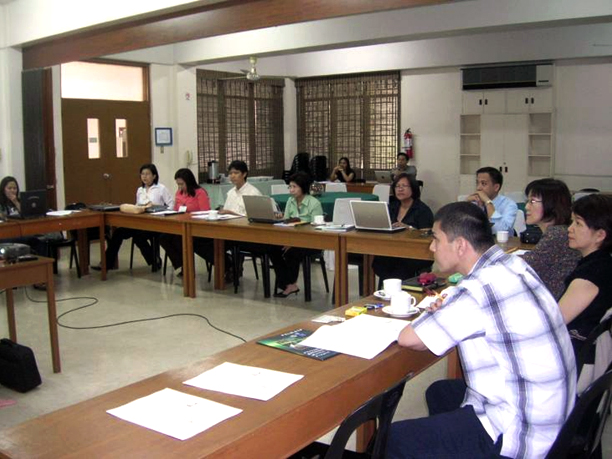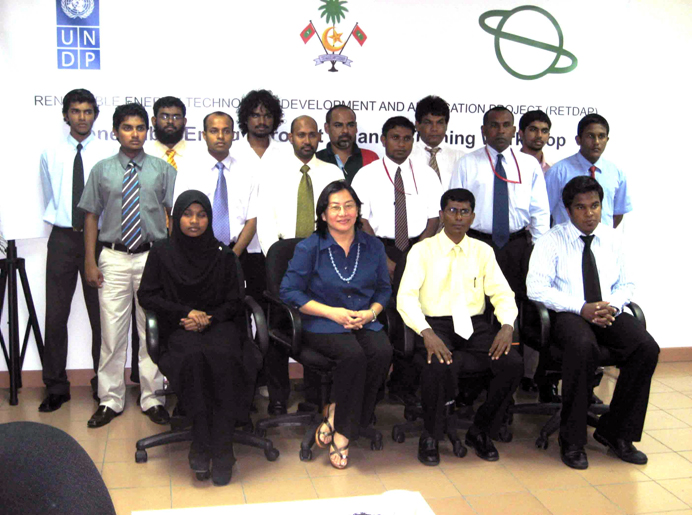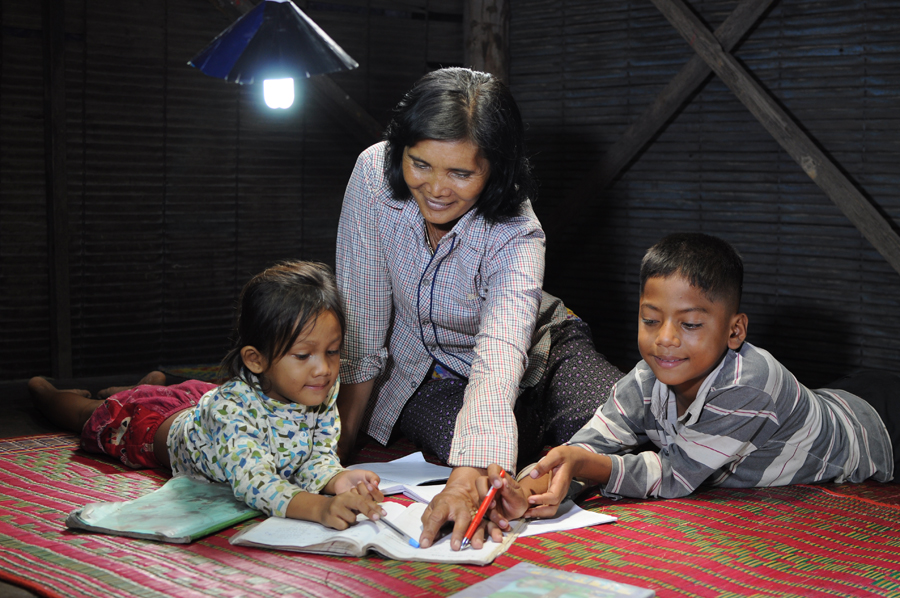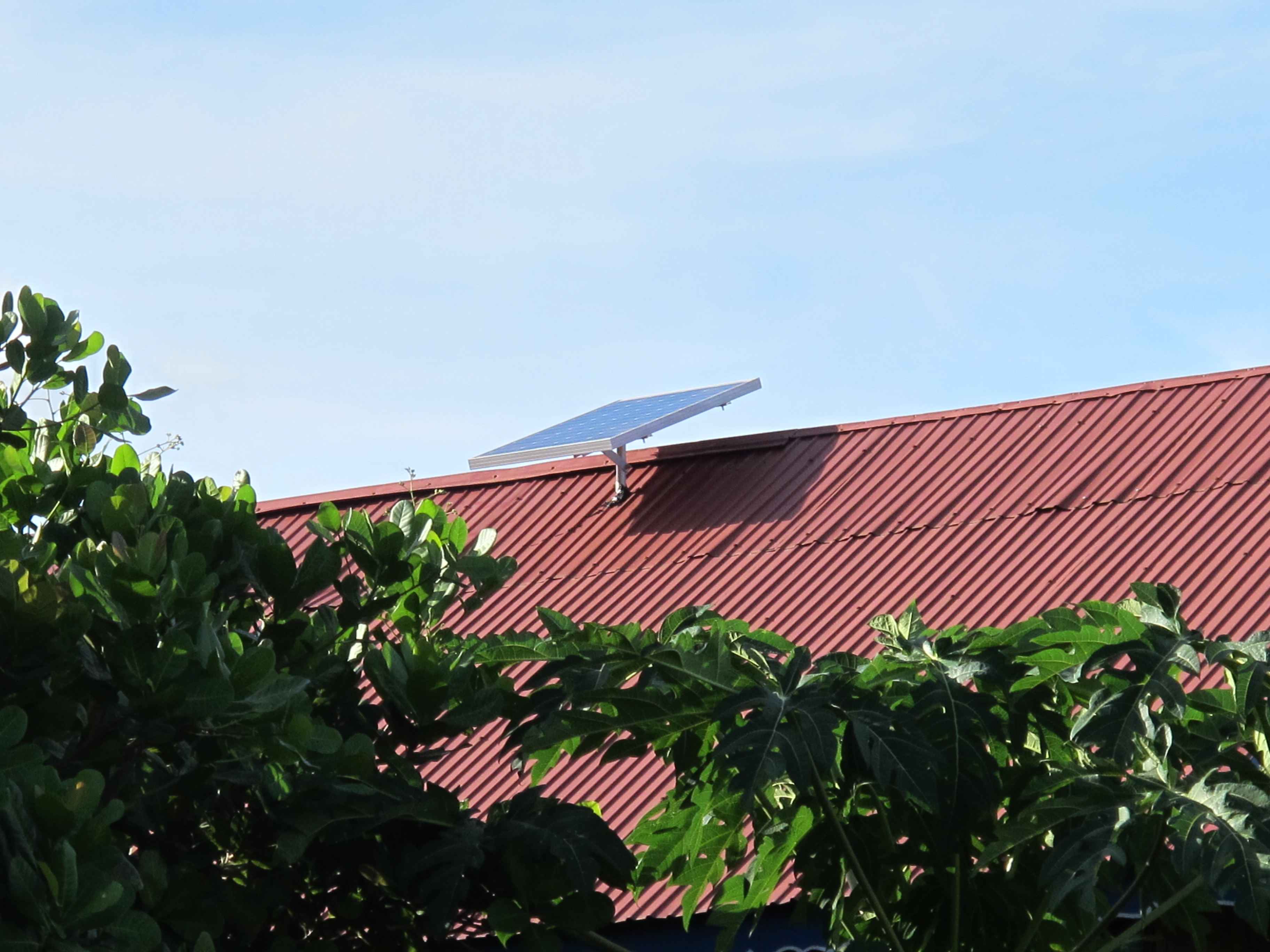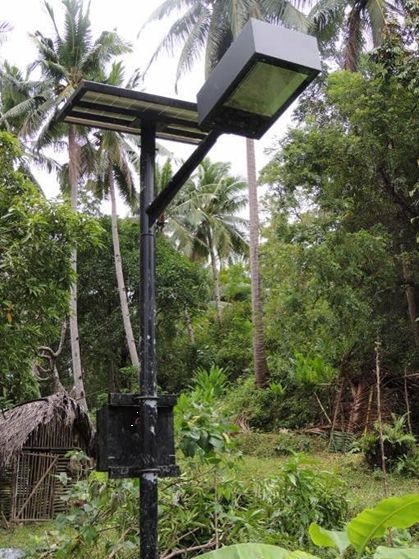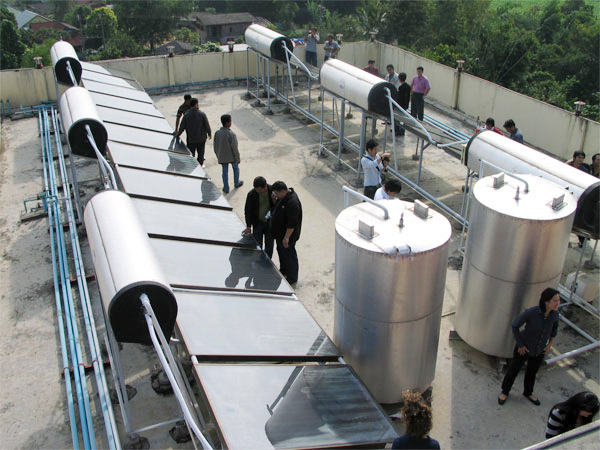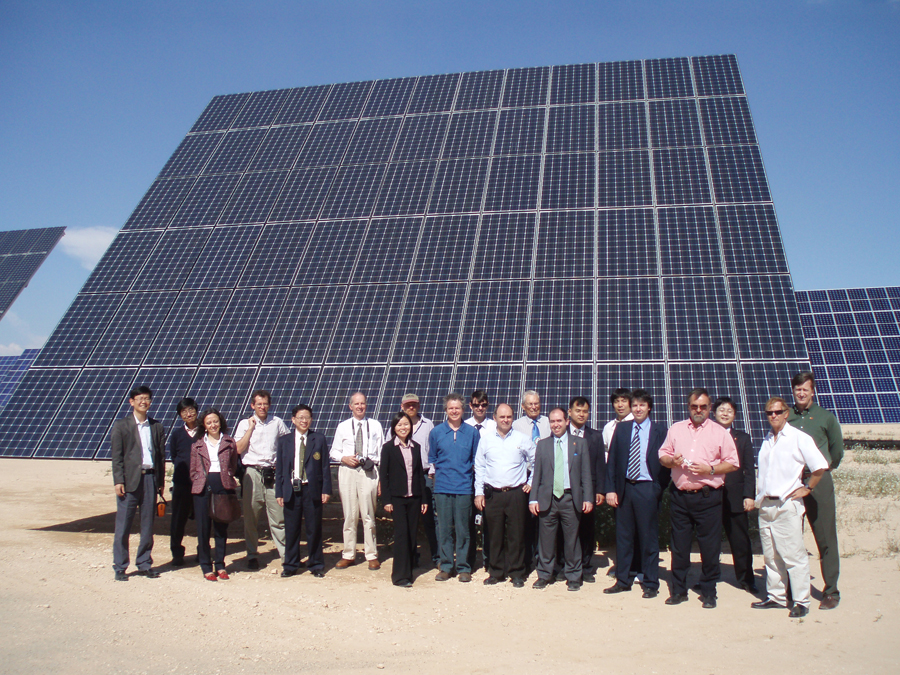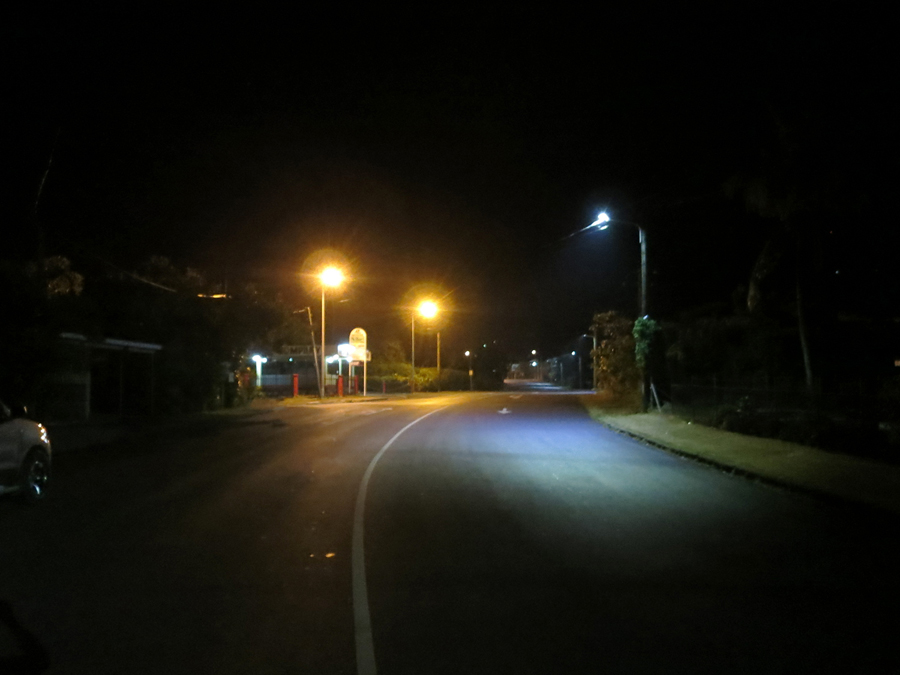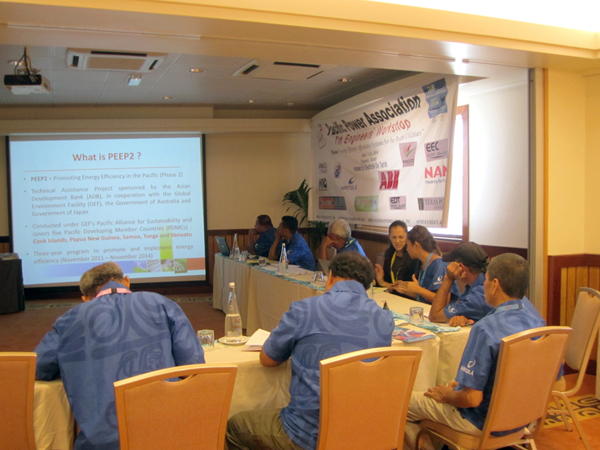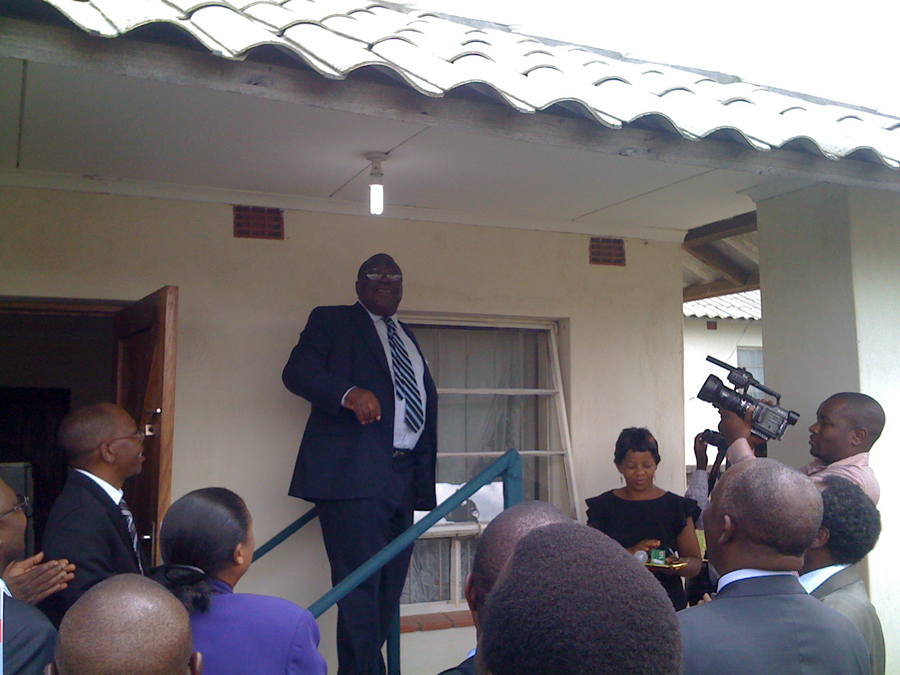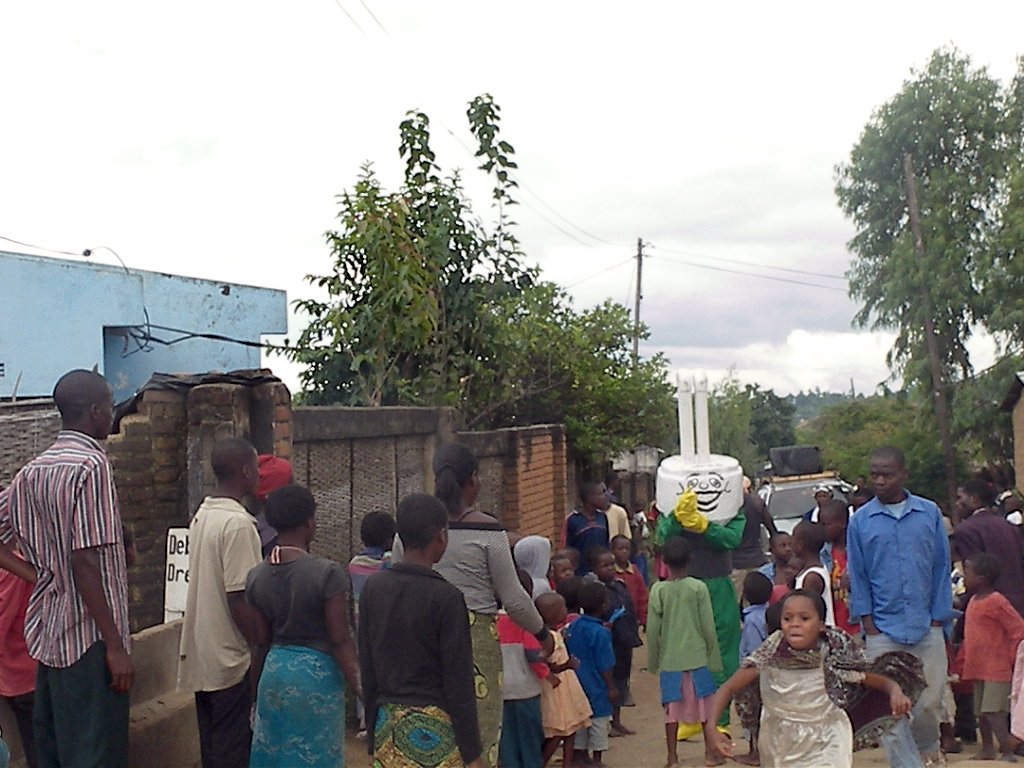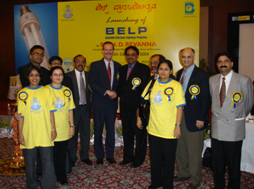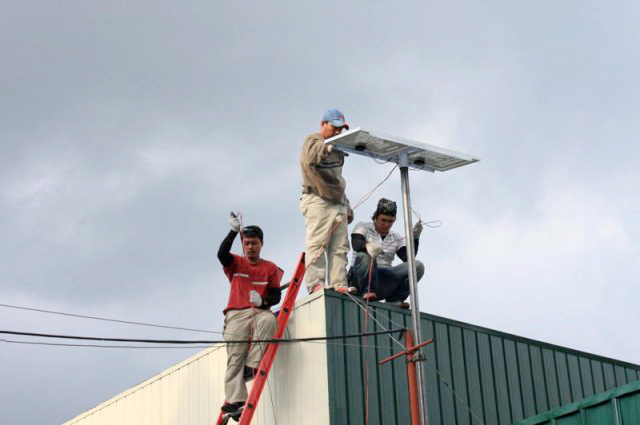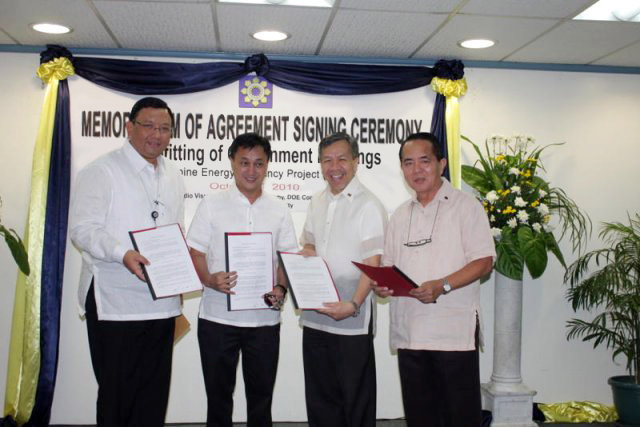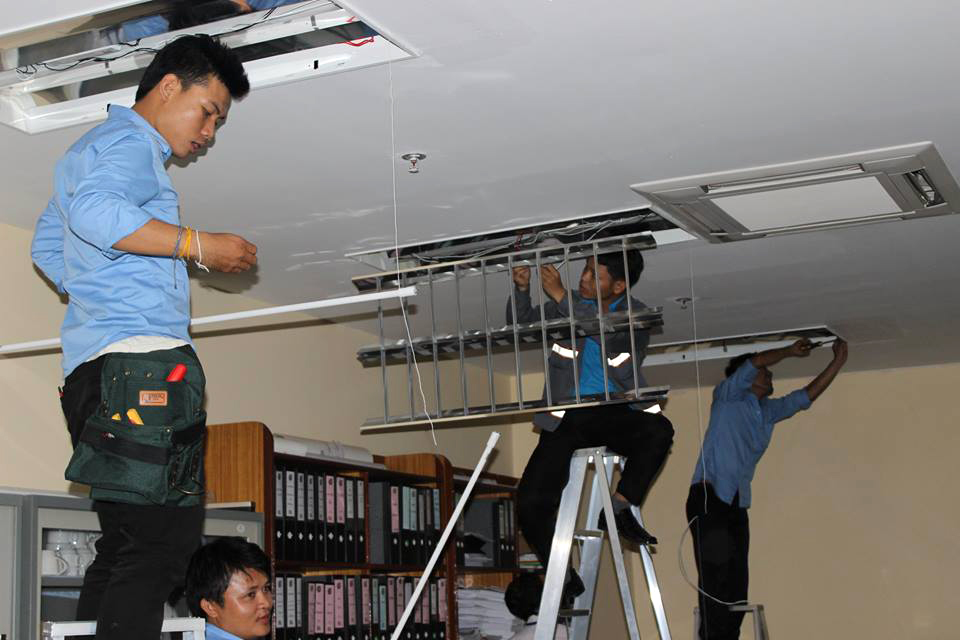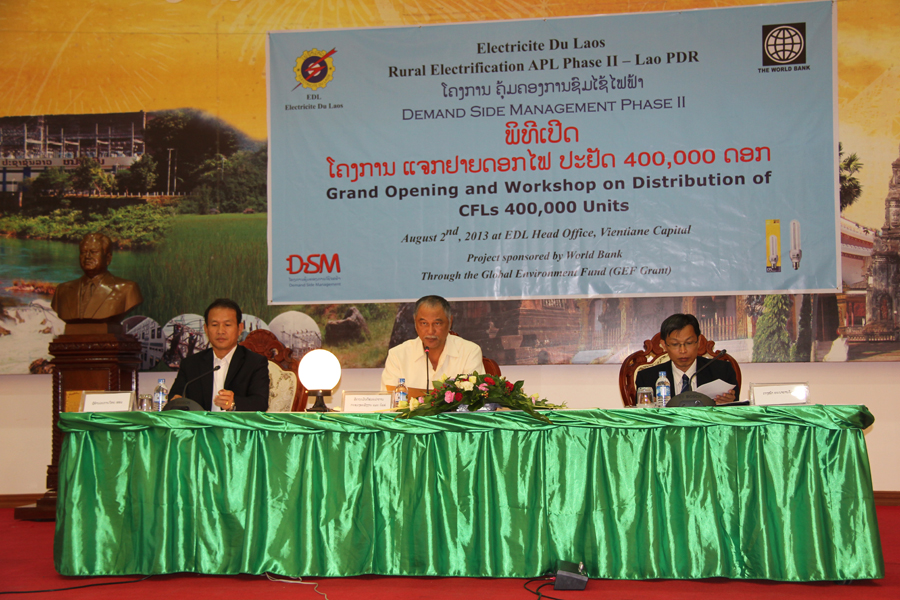Pacific Islands
Under the Promoting Energy Efficiency in the
Pacific - Phase II (PEEP II) Project, IIEC conducted a
training program to support the development of EE
projects in five Pacific Island Countries: the Cook
Islands; Papua New Guinea; Samoa; Tonga; and
Vanuatu. The training modules covered energy auditing,
financial analysis, measurement and verification
(M&V), contracting, marketing, and project management.
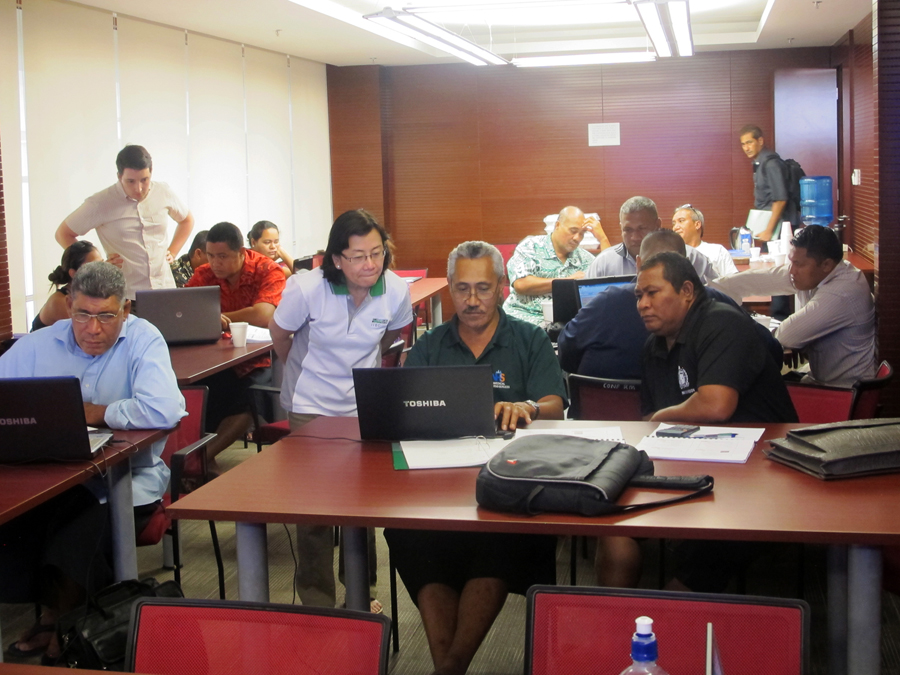
Energy Audit Training in Samoa
Vietnam
IIEC conducted several training programs in
Vietnam covering the commercial, industrial and
Small and Medium Enterprise (SME) sectors with
funding from the World Bank, UNDP and ADB. A
four-year program titled Commercial EE Pilot
Program (CEEP) focused on the private sector
(ESCOs, financial institutions and equipment suppliers)
and EE project development, resulting in the
implementation of 205 EE projects. In the industrial
sector, the training focused on energy management
practices for senior and middle management and
investment-grade energy audits. In the SME sector,
training was provided to potential ESCOs and
energy efficient equipment suppliers.
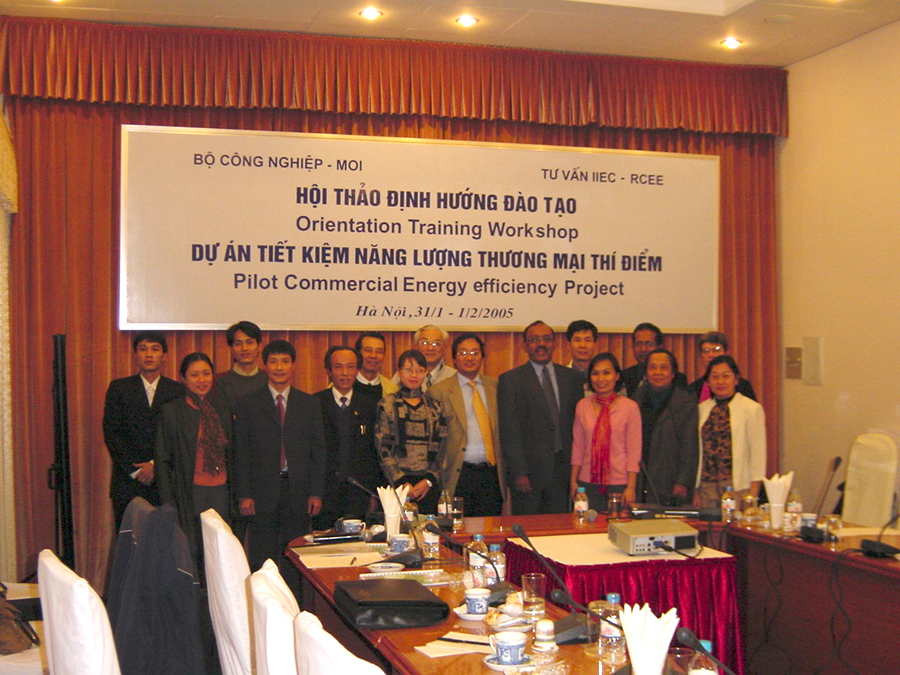
Training Session for Equipment Manufacturers and Suppliers
Lao PDR
As a part of the World Bank funded Demand-Side
Management and Energy Efficiency (DSM/EE)
Project, IIEC conducted an advanced energy audit
training program for DSM staff and energy coordinators
at Electricite du Laos (EdL), and prepared a professional
development program for EdL staff.
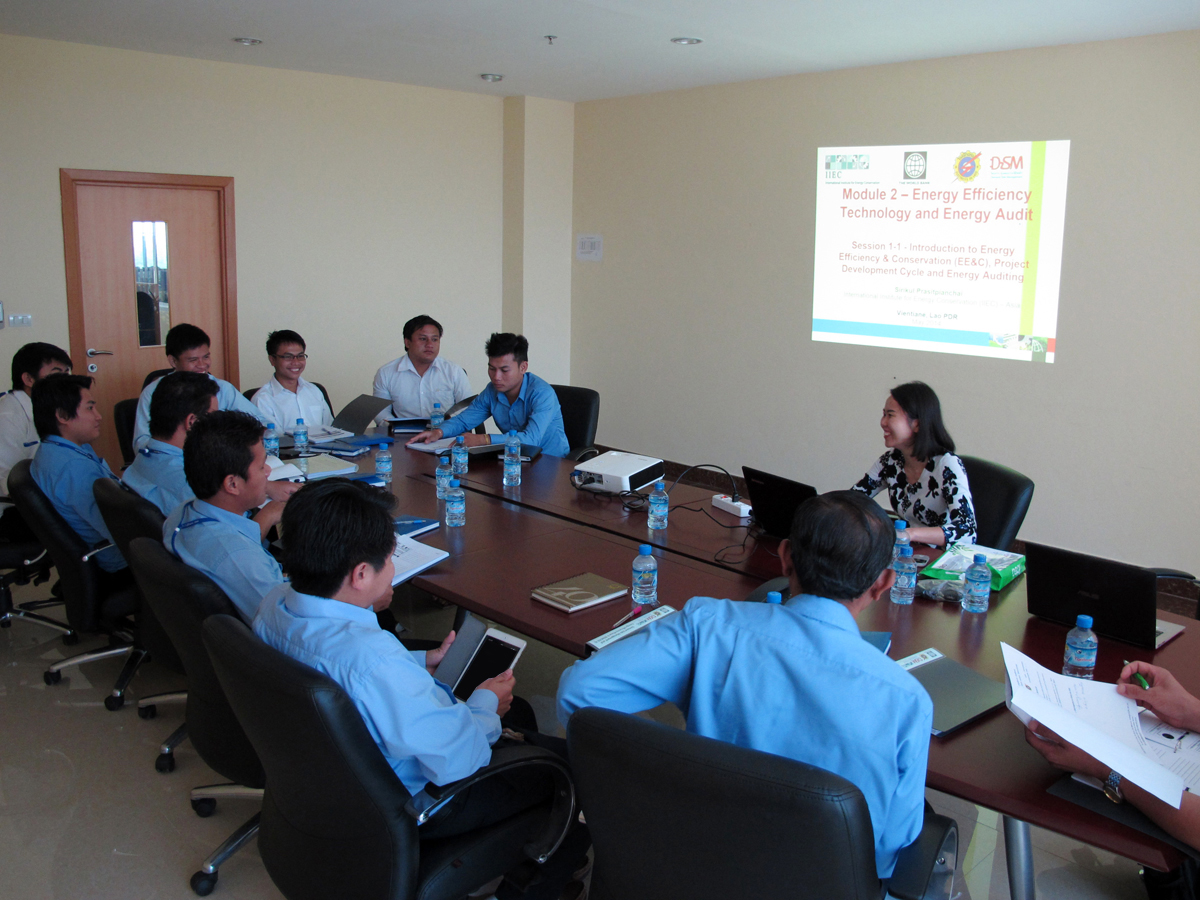
Advanced Energy Audit Training in Lao PDR
Kenya
IIEC delivered a detailed introductory and technical
training on Standards and Labeling (S&L) to key
implementers in Kenya. This project was part of the
national S&L Programme, which was a 5-year
initiative designed to remove barriers to market
transformation of energy efficient products and
services in Kenya. The program was funded by
UNDP and supported by the Ministry of Industrialization
and Enterprise Development.The training
covered testing procedures, performance standards
and certification for CFLs and fluorescent
tubes, domestic and commercial refrigerators, air
conditioners, and three-phase electric induction
motors.
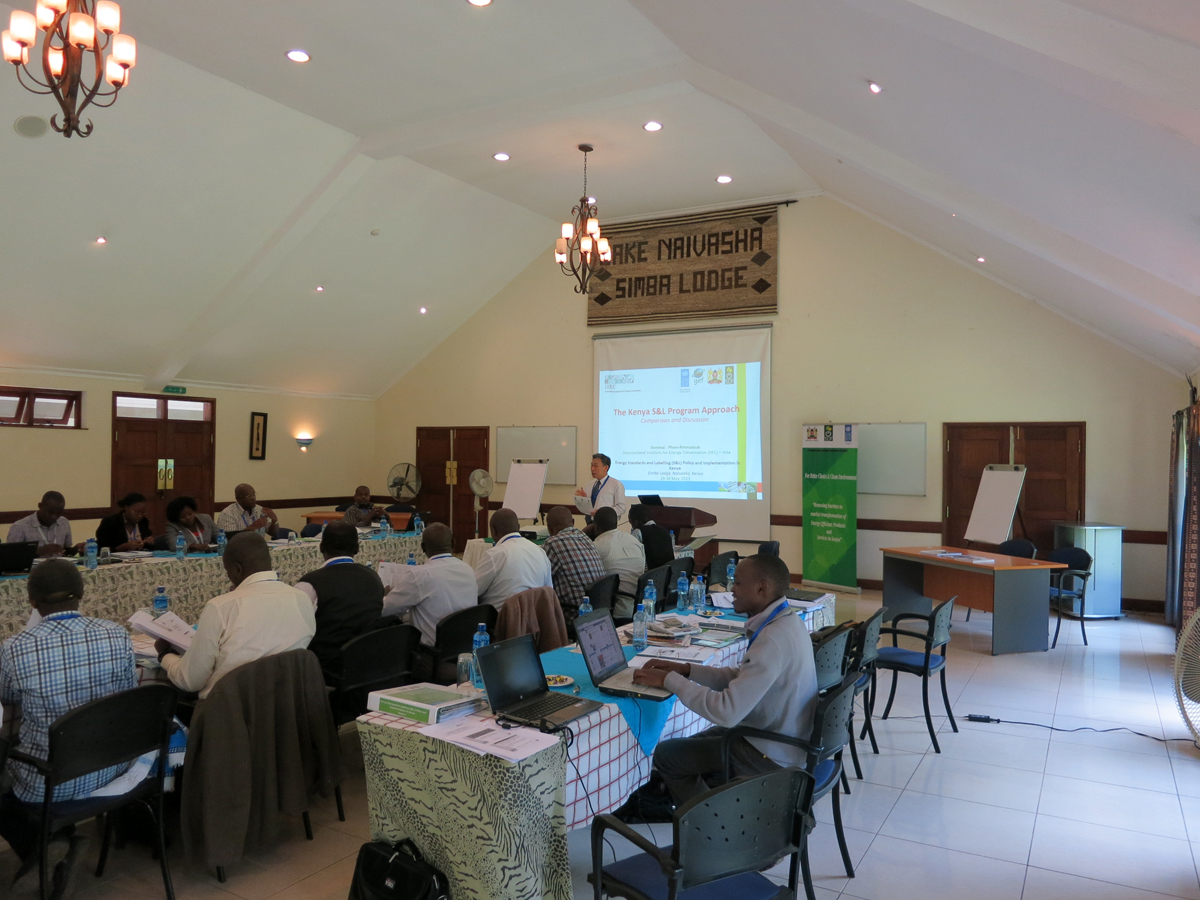
S&L Training in Kenya
Lebanon
For the Lebanese Center for Energy Conservation (LCEC) Project on Capacity Building of ESCOs,
funded by UNDP, IIEC designed, developed and conducted training modules on EE project financial
analysis and evaluation. The training materials included the development of an automated spreadsheet
for the financial projection of project cash flow, income and balance sheet statements tailored for the
Lebanese economy.
Our Achievements at a Glance
| Country | Project | Funding Agency | Impacts |
| India | Technical Assistance to Small Industries Development Bank of India (SIDBI) on Energy Efficiency and Clean Production Credit Lines | KfW / Small Industries Development Bank of India | Development of assessment tools and capacity building of bank staff on EE financing to SMEs with M&V for credit line performance assessment to achieve target emission reduction |
| India | Design of Bank Capacity Building as part of ECO-Asia Clean Development and Climate Program | USAID's Regional Development Mission for Asia | Capacity building of banks and financial institutions on financing EE projects |
| India | Capacity Building of Banks and Financial Institutions for Energy Efficiency Project Financing | Bureau of Energy Efficiency India / HSBC India | Development of a customized capacity building program for bank branch managers and loan officers to effectively appraise and finance EE projects |
| Lebanon | Energy Service Company (ESCO) Training | UNDP | ESCO capacity building on financial evaluation of EE projects |
| Pacific Islands | Promoting Energy Efficiency in the Pacific – Phase II | ADB | More than 100 participants in 5 Pacific Islands trained on energy auditing |
| Philippines | Business Finance Capacity Building on Efficient Lighting | UNDP / GEF | Capacity building of financial institutions on efficient lighting |
| Vietnam | Commercial Energy Efficiency Pilot Project | World Bank | 205 EE projects implemented by trained energy service providers |
| Vietnam | National Energy Efficiency Program | ADB | Investment Grade Audits in 7 industrial sites with investment potential of US$100 million |
| Vietnam | Promoting Energy Conservation in SMEs | UNDP | Training for more than 60 energy service providers to support implementation of projects in the brick, ceramics, paper & pulp, textile and food processing sectors |
| Vietnam | Vietnam Energy Efficiency Public Lighting (VEEPL) Project | UNDP | Capacity building on design, installation, operation, maintenance and management of public lighting system; and Development of a national testing and certification facility in compliance with national and international standards |
| Kenya | Removal of Barriers to EE and Energy Conservation in SMEs | UNDP / GEF | Capacity building of SMEs in developing bankable EE projects |
| Kenya | Prepare & Deliver Training for Energy Standards and Labels | UNDP | Capacity building on energy performance standards and labels for policy makers, implementers and distributers/importers |
| Lebanon | Energy Auditing and Project Development | UNDP | Enhanced audit quality and bidding procedures for implementation |

